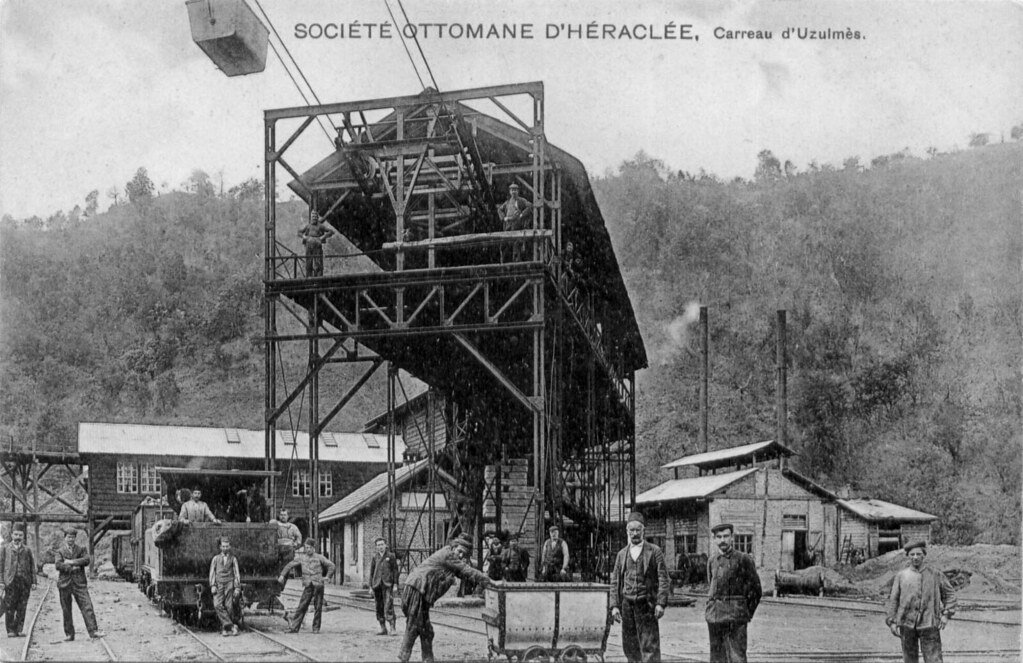to the members of the new Turkish Parliament, describing
his tireless efforts against the intrigues and immorality of
the Sultan's regime.//

Nara Point is just north of the city of Çanakkale. This map
refects the sinking of the Turkish Navy submarine "Dumlupınar"
(formerly the USS Blower) near Nara in 1953.
The war with Greece ended and the army returned from the border. But
the fleet was left stranded at Na're (Nara) port, Kale-i Sultaniye, and
after so many years of neglect the decks were collapsing and the beams
under them were leaking water in. The officers and sailors were
experiencing very poor living conditions, forced to endure the winter
sleeping in waterlogged ship comparments. Reports in this regard sent
to the Navy Ministry and the Court of the Sultan did not bear fruit.
Katib-i Sani (second secretary in the Court) İzzet, for his own interests,
aimed to have these aging and essentially useless ships refitted and
rearmed. My counter-efforts against this were unsuccessful.
I lobbied hard to have this increasingly decrepit fleet brought back to
Istanbul, in light of the continuing deterioration and the crews' horrible
living conditions. I recommended to the Navy Ministry repeatedly that
the ships should be sold for scrap and the money used to build new
ships. My pleas were ignored and, meanwhile, intense efforts were
underway to spread secret and corrupting information among my
crews. In particular, in the final years at Kale-i Sultaniye, two
scoundrels named Ahmed Kapudan and Aziz Bey and their cohorts,
under the direction of 10-year Topçu Mirliva (artillery major general)
and secret agent of the Sultan's palace, Şakir Paşa, acted as secret
agents for the palace. They even sent a message to the Court of the
Sultan alleging that the crew of the Hamidiye had risen in revolt,
along the lines of the rebellion of the Russian crew of the Potemkin
warship that occurred recently (1905), and intended to take the ship
to Istanbul.
Potemkin crew revolt click here for background on this event.
As a result, two of the Sultan's advisors, Sadık Paşa and Miralay
(colonel) Nihad Bey, set out for Kale-i Sultaniye at night, sailing in a
zig-zag fashion through the Sea of Marmara, to make an inspection.
For a long time, it had been rumored that these two had ties to the İttihat
ve Terakki Cemiyeti (Committee of Union and Progress, opposed to the
Sultan and made up of the Young Turks) and sought revenge on me. I
heard from reliable sources that they would take every opportunity to
exact vengence on me. The ugly statements and various threats of
these immoral and unskilled scoundrels makes it astonishingly
doubtful that the aforementioned Committee would put up with them.
I was the Navy Minister for 1.5 years, during which time I encountered
endless difficulties, being forced to obtain permission from the Sultan
for even the most minor activities. The former head clerk of the palace,
Tahsin Paşa, and his deputy İzzet Paşa, were the influencial officials I
was forced to take direction from. They advocated, for their own profit,
having the State take high-interest loans as proposed by Anatolian
Railroad Director Heuguenen. As a result, Istanbul's most important
and select coastal locations essentially became a German colony. For
example, they didn't hesitate to have a 20-year loan taken from
Heuguenen for 200,000 liras to refurbish the Karaköy Bridge.

And the vital coal mines of our seafaring nation at Ereğli (on the
western coast of the Black Sea) were turned over to the French for
hundreds of thousands of liras that went into personal pockets. In
addition, I lobbied hard to the government for mandatory annual
payments of more than 100,000 liras due from the foreign and,
particularly Greek, shipping companies operating along our shores.
However, despite a commission upholding my position, due to the
influence and intrigues of certain high-ranking individuals who
benefitted from the companies, the good of the nation was ignored.
Their harmful proposals were presented to the government, without
my seal or signature, and, despite my fierce opposition to this matter
and to the Ereğli coal mines issue, they went into effect. So it is plain
to see that I certainly did not share in the acts or the ideas of these men
of despotism.

French coal mining at 'Héraclée' (Ereğli) around 1900.

Hiç yorum yok:
Yorum Gönder